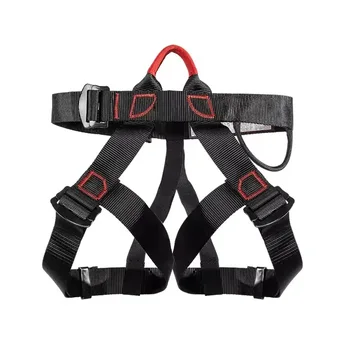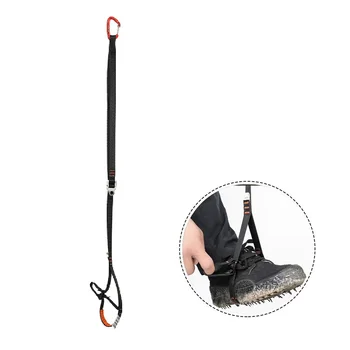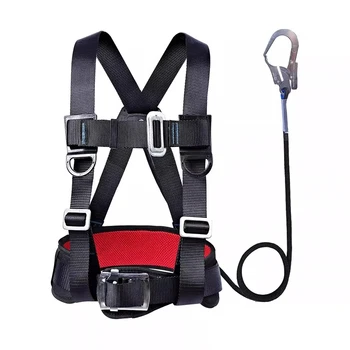product video
Introduction
Working at high altitudes poses significant risks, making fall protection equipment essential for ensuring the safety of individuals engaged in such activities. One of the most critical components of fall protection systems is the safety belt or full-body harness, which serves as a primary means of preventing falls or minimizing their consequences in the event of an accident. This guide will delve into the intricacies of high-altitude work safety belts, exploring their design, materials, functionality, and appropriate applications.
Design and Construction
High-altitude work safety belts are typically designed as full-body harnesses, incorporating multiple attachment points to distribute the forces generated by a fall across the user’s body. This design ensures that the load is spread evenly, minimizing the risk of injury to specific body parts. The belts are constructed using high-strength, lightweight materials such as nylon or polyester, offering excellent durability and resistance to abrasion.
Key Components
-
Shoulder straps: The shoulder straps are the primary load-bearing components of the harness, connecting the dorsal D-ring to the waist belt. They are designed to distribute the weight of the user and any suspension device uniformly across the shoulders.
-
Waist belt: The waist belt encircles the user’s waist, providing a secure and comfortable fit. It is equipped with a quick-connect buckle for easy donning and doffing.
-
Leg straps: The leg straps secure the harness around the user’s legs, preventing the belt from riding up or shifting during a fall. They are adjustable to accommodate varying leg lengths and ensure a snug fit.
-
D-rings: D-rings are metal attachment points located on the back (dorsal), front (sternal), and sometimes on the sides of the harness. They provide secure anchor points for lanyards, lifelines, or other safety devices.
Materials and Durability
High-altitude work safety belts are primarily constructed from high-strength synthetic materials such as nylon or polyester. These materials possess excellent durability, resistance to abrasion, and weather resistance, ensuring the belt’s integrity even in harsh conditions. The webbing used in the harness is typically wide and robust, providing optimal load-bearing capacity without compromising comfort.
Functionality and Applications
The primary function of a high-altitude work safety belt is to restrain the user in the event of a fall, preventing them from plummeting to the ground. It distributes the impact forces over the entire body, minimizing the risk of severe injuries. Additionally, the belt allows for the attachment of lanyards, lifelines, or other fall arrestor devices, providing a complete fall protection system.
Applications:
- Construction work
- High-rise window cleaning
- Maintenance and repair of wind turbines
- Telecommunication tower work
- Climbing and mountaineering
Proper Use and Maintenance
To ensure the effectiveness of a high-altitude work safety belt, proper use and regular maintenance are essential. Users should receive thorough training on the correct way to wear and adjust the harness. Regular inspections should be conducted to check for any signs of wear or damage. The belt should be cleaned and stored appropriately to extend its lifespan and maintain its safety functionality.
Frequently Asked Questions
-
What is the difference between a half-body harness and a full-body harness?
A half-body harness covers the waist and legs, providing fall protection from waist-level falls. A full-body harness, on the other hand, encloses the entire body, offering comprehensive fall protection from head-to-toe. -
How often should I inspect my fall protection harness?
Regular inspections should be performed before every use and more frequently if the harness is exposed to harsh conditions or heavy use. -
What should I look for when inspecting my harness?
Inspect the webbing for any cuts, tears, or fraying. Check the buckles, D-rings, and other hardware for corrosion or damage. Also, examine the stitching for any signs of weakness or failure.
Relations




























